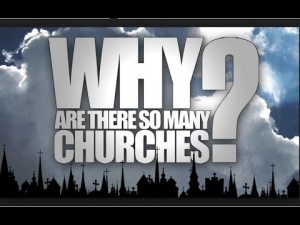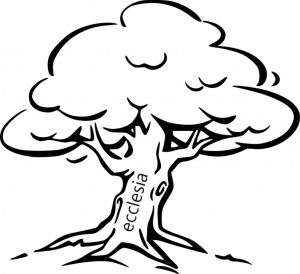Another Year of Choices
By Barbara Dahlgren
 The idea of Christian denominations is an interesting one. Some ask, “If God is so intent on unity of the faith, why are there so many denominations?” (Ephesians 4:13) I must admit I used to find this puzzling. How can all these denominations be right? How can all these denominations be wrong? It is an enigma.
The idea of Christian denominations is an interesting one. Some ask, “If God is so intent on unity of the faith, why are there so many denominations?” (Ephesians 4:13) I must admit I used to find this puzzling. How can all these denominations be right? How can all these denominations be wrong? It is an enigma.
There are certain biblical beliefs we might call core values. Some of these would be believing there is one God, Jesus is His Son, Jesus came to earth, Jesus died for our sins, and Jesus rose again. However, there is much in other areas left up to the guidance of the Holy Spirit. If the Holy Spirit is guiding people who are seeking to serve God and worship Him in spirit and truth, then we must assume there are a variety of ways to do so since there are so many denominations. (John 4:24) This shouldn’t be hard to accept since God loves variety and diversity.
Unity and diversity are two different things. Christian unity involves core values and beliefs, the trunk of the tree so to speak. Diversity on the other hand is how we choose to worship, trust, obey, believe, and have faith – the limbs and twigs of the tree, so to speak.
Some call the Bible the instruction book for the saints. In that book, God has made certain instructions plain and simple, but in other areas He has left much room for Spirit-led interpretation. To be on safe ground we need to be praying, studying the Bible, meditating on Scripture, doing our best to implement what we learn in our lives, and not condemning others who may not see eye-to-eye with us on everything.
Ah, therein lies the danger! Condemnation! (Romans 2:1; 14:9-11) In the past, some denominations were presumptuous enough to claim they were the “one” true church and judged others who did not agree with them in these diverse areas. However, God seems to give quite a bit of latitude in many areas even if man does not. Jesus, himself, defied traditions and looked not to pomp and circumstance, but to a person’s heart.
Some denominations prefer to worship systems more than Christ, making traditions of the past more important than the desire to change for the present or future. Others feel their way is the only way to Christ, which sort of limits God and gives an exclusive rather than inclusive view of the church.
Consider this… When “church” is mentioned in the Bible it is not referring to a denomination. In the Greek it is “ecclesia” meaning “those who have been called out.” They have been “called out” of a world that rejects God and “into” a fellowship with God and others who believe in Him. These “ecclesia” could very well be found in every denomination. You might recognize them because they won’t be condemning others who believe in Jesus but have a slightly different way of serving Him. They will be practicing the love of God and be focused on the trunk of the tree, not the twigs.
Suggestions for practicing this choice…
- Don’t condemn others who do not share your Christian views.
- Don’t compromise with biblical core beliefs, but don’t try to convince yourself that your personal preferences are core beliefs. There are many hazy areas of the Bible.
- Don’t try to convince others you are right and they are wrong. That’s God’s job, not yours. True religion knows how to bridle its tongue. (James 1:26)
- Don’t deceive yourself into believing God has sent you to convince others you are right and they are wrong.
- Ask God to help you align your views with His.


